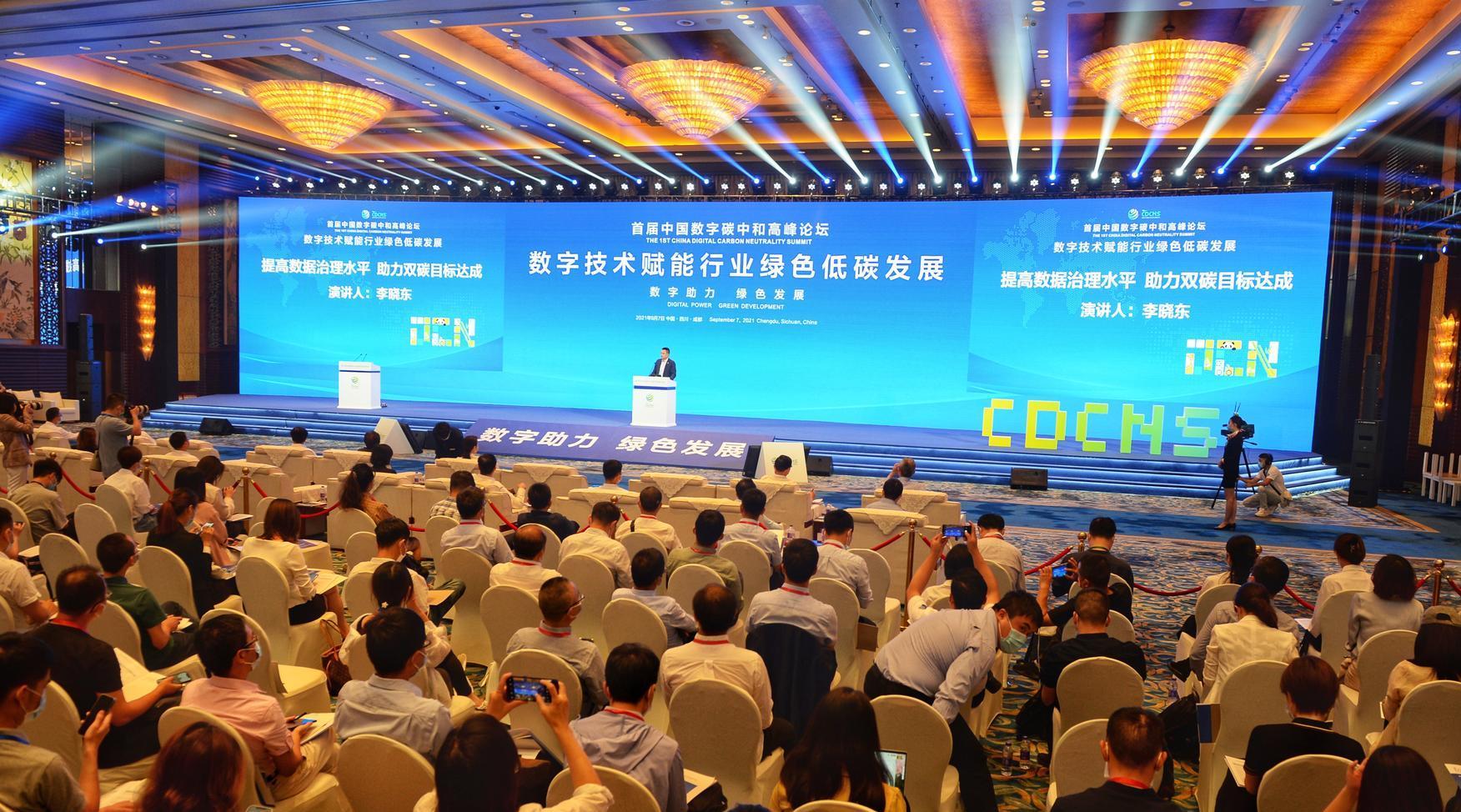"Over the past 20 years, there has been a social division of labor in the use of data. Facing the future and facing more data, how to make full use of the market mechanism and reduce the resource consumption in the process of data use is an important proposition. ”
At the first China Digital Carbon Neutrality Summit Forum, Li Xiaodong, director of the Internet Governance Research Center of Tsinghua University and director of Fuxi Think Tank, proposed that improving the level of data governance can not only solve data security problems, but also improve data use efficiency and reduce resource consumption.
In addition, Li Xiaodong also believes that determining data ownership is an effective starting point for revitalizing the digital economy, and the cultivation of composite talents also plays an important role in the construction of the digital economy and the process of digital carbon neutrality.

Data center energy consumption continues to rise
Solving the problem of "idling" and "internal friction" requires market-oriented means to adjust
Data centers are the core infrastructure and national strategic resources in the digital economy era, but according to the existing industry energy consumption index measurement methods, the data center industry has always been defined as a high energy consumption industry, and is strictly limited by the approval of energy consumption indicators, and even some people call it a "smokeless steel mill".
Li Xiaodong told reporters that at present, the proportion of data centers in the national electricity consumption is about 2%, and this proportion is still rising.
"The development of the digital economy will inevitably produce a lot of data, and the number and use of China's super-large data centers are still a certain distance from the international level, and are currently in the process of accelerating construction." However, from the current point of view, the energy consumption of China's data centers is still high, which is determined by the total number of data centers and the growth rate of the digital economy, even so, the energy consumption problem still needs to be gradually overcome. ”
In Li Xiaodong's view, the use of clean energy, including wind energy and hydropower, can reduce the carbon emissions of data centers, and at the same time, data technology can also be used to empower traditional industries, thereby reducing the overall carbon emission level of society.
"Data in the collection, transmission, calculation, storage, including application and other aspects of the need to consume energy, in this process there is actually a lot of energy waste." Therefore, how to effectively allocate storage and computing resources across the country, including the world, and efficiently support data applications requires the cooperation of all parties in the data chain. Both the business community and the academic community should cooperate to reduce the 'idling' and 'internal consumption' of data by using technical means, and comprehensively consider how to reduce energy consumption. ”
Li Xiaodong believes that in the future, more market-oriented means will be used to adjust the whole process of data collection and utilization. "In the whole data life cycle, there will be different industries' roles, how they cooperate, how to form a market mechanism, I think such roles and distribution systems are taking shape."
The social division of labor reduces the burden of digital transformation of enterprises
Achieving carbon neutrality goals requires more "compound talent"
The full use of data elements is changing the patterns of industrial manufacturing and agricultural production, reducing significant carbon emissions. However, in this process, many enterprises are worried that the input cost is too high, resulting in a wait-and-see mentality, making the digital transformation of some industries not smooth.
Li Xiaodong believes that the supply of knowledge and talents in society is limited, which determines that all small and medium-sized enterprises cannot be expected to become a digital transformation expert, and professional people need to do professional things.
"In the development of the digital economy, the goal of carbon neutrality is often achieved through the social division of labor. Allowing those professional institutions to serve enterprises in need can greatly reduce the digital operating costs of enterprises, thus spawning the transformation needs of more small and medium-sized enterprises. ”
Li Xiaodong mentioned that many traditional enterprises, including commercial enterprises, including industrial manufacturing enterprises, in the face of survival problems, often the environment forces enterprises to try to reduce production costs through digital means, and this process also brings about a reduction in carbon emissions.
When it comes to the relationship between digital carbon neutrality and Chengdu, Li Xiaodong looks forward to seeing Chengdu come up with more talent training solutions.
"Chengdu is attracting more and more young people to settle down, while the city's rapid development is also challenging the goal of reducing carbon emissions. Whether we can use talent resources, find talent training paths, and transform talent advantages into green development momentum is an important challenge. China has a wealth of computer talents, but when it comes to digital carbon neutrality, what is needed is often compound talents, not only to understand digital, to understand the economy, but also to understand the humanities and social sciences, at this stage there are not many such talents. ”
Red Star News reporter Ye Yan Wang Peizhe photojournalist Wang Huan
Edited by Yixi Chen
(Download Red Star News, there are prizes for the newspaper!) )